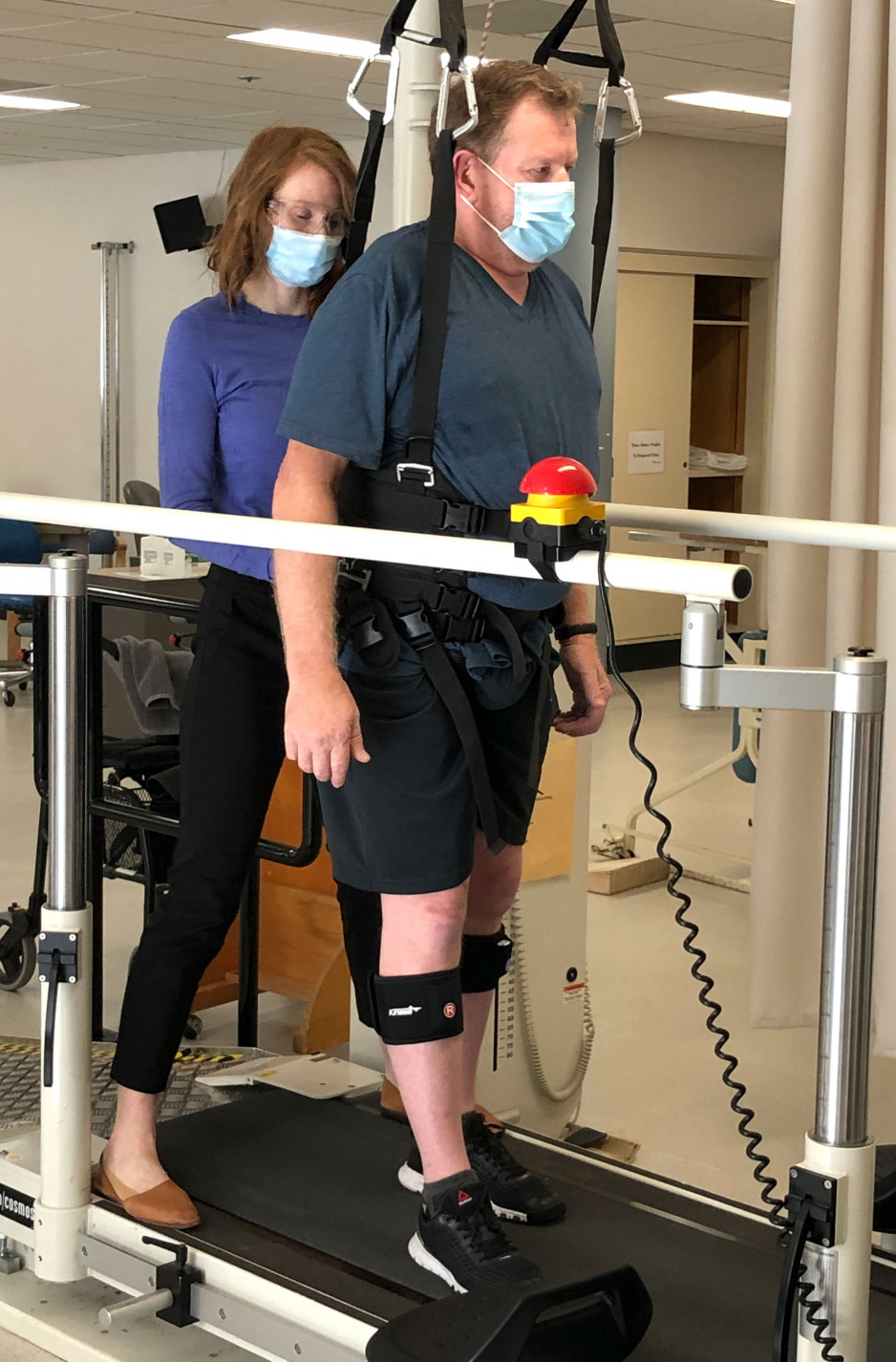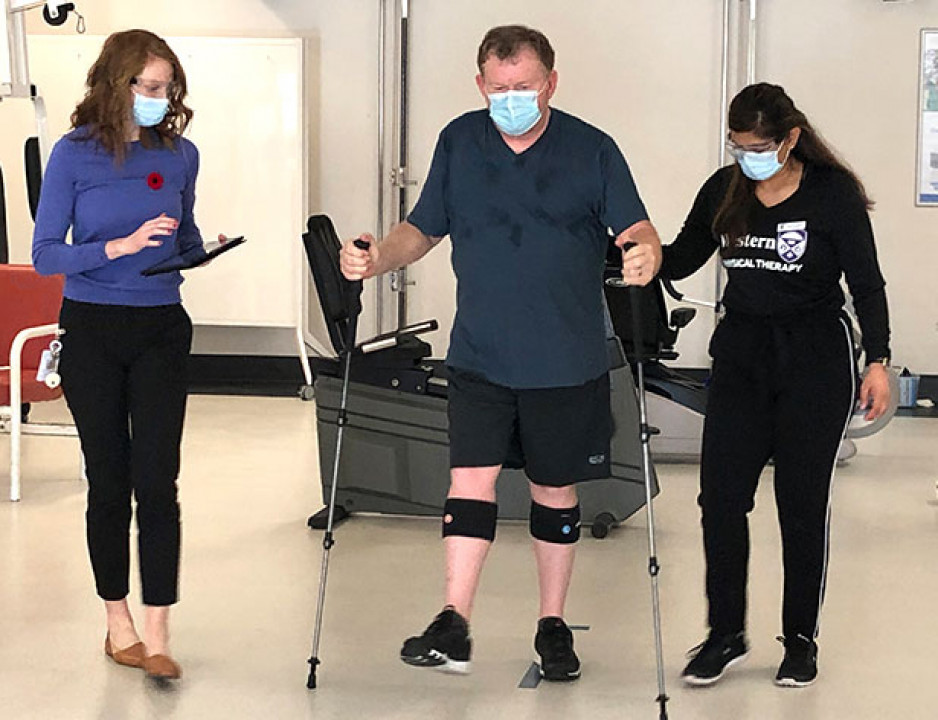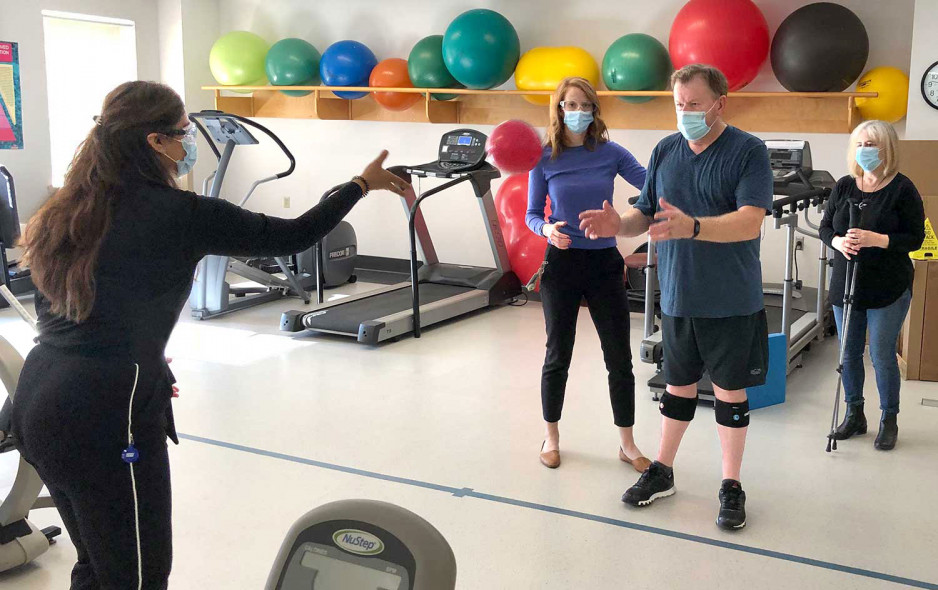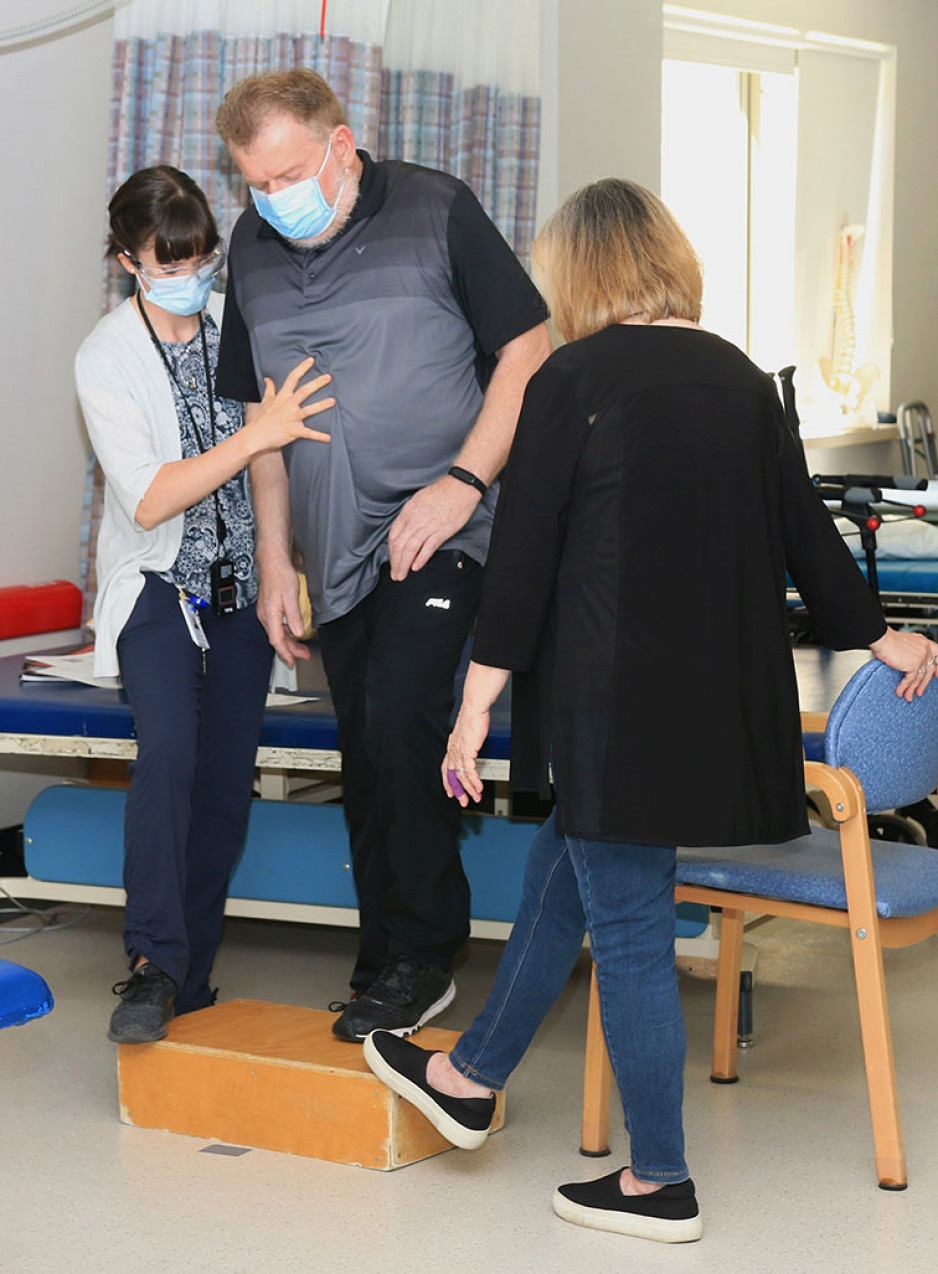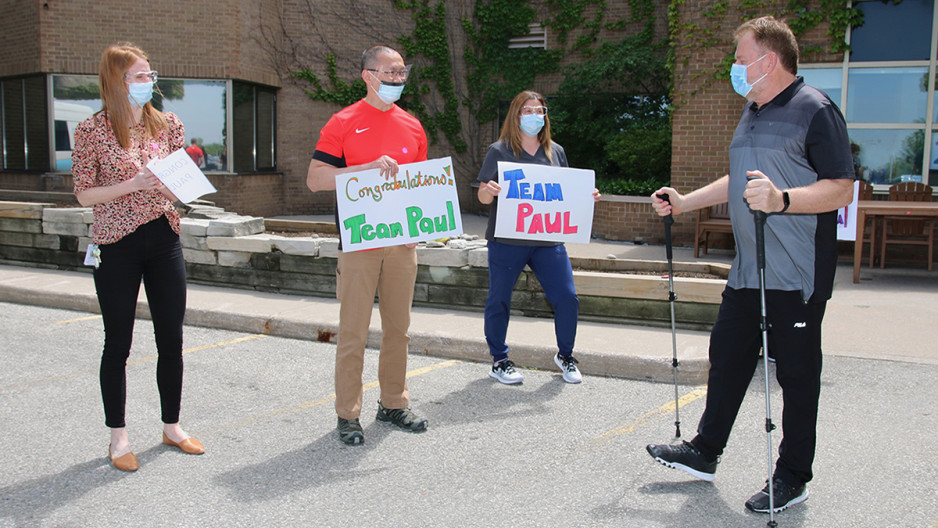Search
Search
Changing lives through innovation
It started like any other day. Paul Garrett could never have imagined that by the end of the day, he would be paralyzed from the waist down.
On May 25, 2019, Paul was making coffee before another day’s work as an appliance installer when he noticed a slight tingling in the toes of his right foot. Being fairly fit and in his early sixties, he didn’t think much of it – until the numbness got worse, moving up to the base of his spine and down the other leg. Within 30 minutes of the initial sensation, he lost all feeling and function in his legs.
Paul was rushed to the nearest emergency department. For some reason, he knew his life had changed forever. He assumed he was suffering from a stroke.
“Before the ambulance arrived, it was terrifying and emotional. I had this feeling I would never walk again.”
"... Nothing was working when I got to Parkwood Institute."
It wasn’t a stroke but Paul was right about the life-altering ramifications. After days of testing, he was diagnosed with acute onset transverse myelitis, a rare neuroimmune disorder where inflammation damages the insulating material (myelin) covering the nerves along the spine. Without this protective coating, signals from the brain to the spine and back cannot occur.
Paul came to St. Joseph’s Health Care London’s Spinal Cord Injury (SCI) Rehabilitation Program at Parkwood Institute, where his care team partnered with him and wife Brenda to develop a recovery plan.
“They started from scratch with me, nothing was working when I got to Parkwood Institute,” says Paul.
When occupational therapist Charlie Giurleo asked Paul and Brenda what their initial goals for rehabilitation were, they were quick to answer. Paul wanted to get to his son’s wedding, just a month away. The team, and
Paul, got to work, focusing treatments and exercises on learning how to get out of bed, transfer from the wheelchair to the car, and stand independently.
"... We were able to move on and adapt, thanks to the team..."
“I made it to the wedding, and I was even able to stand for a few pictures with my family. It was amazing.”
Then it was time to set longer term goals for his recovery and Paul knew exactly what he wanted, “I wanted to walk out of the building on my own.”
While the physical recovery was a significant hurdle for the Garretts, so was the emotional recovery.
“The SCI Rehabilitation Program team gave us wonderful support and information on how to live with a spinal cord injury,” says Brenda. “There was a lot of grief in the beginning for a life that was profoundly changed and would never be the same again, but we were able to move on and adapt thanks to the team at Parkwood Institute who were so positive and empowering.”
Emboldened by his care team, Paul was able to remain upbeat. Each time he met a new health care provider, he would tell them, ‘You’re on Team Paul now,’ as he held up his hand for a fist bump.”
Getting stronger
With the support of Team Paul, including his wife, a determined Paul worked on his walking one day at a time. “The team said to me, to go quicker is to go slower… to remain focused every day and get a little bit stronger.”
Paul was fortunate to have access to specialized rehabilitation equipment and expertise of members of St. Joseph’s Gray Centre for Mobility and Activity as part of his treatment.
“The equipment and the expertise in The Gray Centre were instrumental in Paul’s recovery.”
The Gray Centre is focused on expanding and advancing mobility and rehabilitation treatment and prevention solutions through research and collaborations between scientists and health care providers using the latest technology and innovations.
“Current patients of St. Joseph’s rehabilitation programs are already benefiting from The Gray Centre,” says physiotherapist Stephanie Cornell. Stephanie was a big part of Team Paul, supporting his rehabilitation plan and treatment.
“The equipment and the expertise in The Gray Centre were instrumental in Paul’s recovery,” says Stephanie. “Utilizing technology such as the body weight support treadmill, we were able to help Paul relearn a walking pattern and get back to being more active in his community.”
All of Paul’s hard work paid off. After his last rehabilitations session he met his goal and walked out of the building on his own. Members of Team Paul lined his pathway out to cheer him on and mark the momentous occasion.
